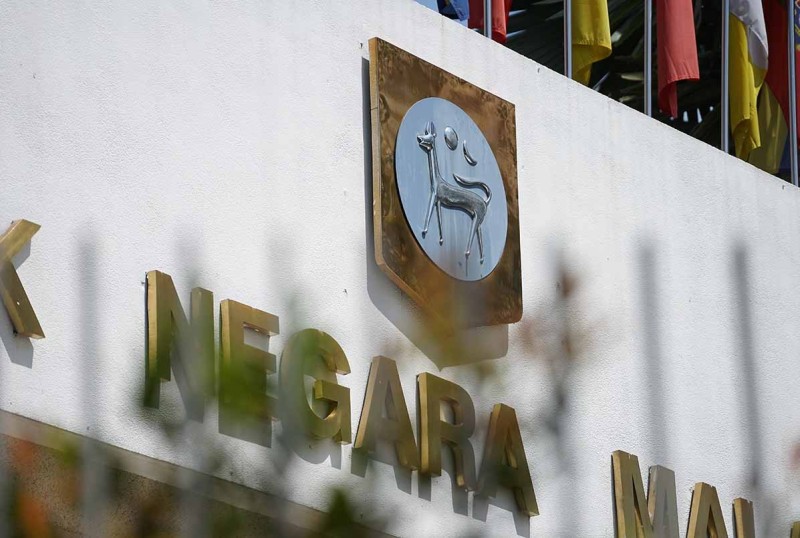
MALAYSIA’S economy remains on track for steady growth this year, supported by a strong banking sector, improving investments and ongoing structural reforms.
However, global uncertainties, particularly from US-China trade tensions, remain key risks to watch.
This was one of the key messages from the 2025 BNM Governor’s Address on the Malaysian Economy and Panel Discussion, held in conjunction with the release of Bank Negara Malaysia’s (BNM) Annual Report 2024.
BNM Deputy Governor Datuk Marzunisham Omar mentioned in his keynote address that the central bank expects growth of between 4% and 5.5% this year, with inflation remaining contained.
He noted that the economy is benefiting from robust domestic demand and improvements in key sectors including manufacturing and services.
Moreover, external headwinds and structural issues, such as low productivity and stagnant wages, require targeted interventions.
Reforming corporate finance for growth
One of the panellists, Sage 3 executive director Dr Ravindran Navaratnam said corporate finance can play a larger role in driving economic expansion.
He cited a restructuring case study which saw a distressed firm return to profitability within two years through debt reduction and revaluation.
Ravindran introduced a new framework based on resource dependence theory, arguing that deals can be concluded faster when power between borrowers and lenders is balanced.
“Faster restructuring means healthier companies, more M&A activity, and stronger GDP contributions. We need a generalised approach that supports this,” he said.
He also called for reforms in bankruptcy laws, noting that current rules disproportionately impact SME owners and inhibit growth.
Trade headwinds still in play
Conversely, Asean +3 Macroeconomic Research Office (AMRO) country surveillance group head Peh Kian Heng highlighted external risks facing the Malaysian economy.
While Malaysia recorded one of the region’s strongest growth rates in 2024, he warned of fallout from a potential escalation in US-China trade tensions.
He noted Malaysia’s semiconductor exports, many of which go through China before reaching the US, could face indirect exposure to new tariffs.
“These are known risks. We must remain vigilant, but also prepare for unknown shocks,” Peh said.
He added that Malaysia should continue focusing on quality investments, especially in sectors that generate local jobs and transfer knowledge, rather than energy-intensive developments such as data centres.
Banks well-capitalised, but talent gap remains
Another panellist, Standard Chartered Bank Malaysia AICB council member and chairman Datuk Yvonne Chia said the banking sector is in a strong position to support national growth.
“Our banks are well-capitalised, with solid capital buffers, healthy loan portfolios and high liquidity. This puts us in good shape to finance economic expansion,” she opined.
However, Chia noted persistent challenges in productivity and wage growth, especially as artificial intelligence and digitalisation reshape industries.
She urged for better alignment between education, training and market needs.
“The banking sector is ahead in its future skills agenda, but upskilling must go beyond finance and into other sectors through national-level coordination,” she said.
Addressing inflation perceptions, cost of living
The panel also addressed public concerns over cost of living and the gap between official inflation data and people’s lived experience.
Peh and Chia stressed the need for better communication and transparency in monetary policy, particularly as inflation expectations influence public sentiment and financial behaviour.
BNM has taken steps to improve communication through simplified snapshots of monetary policy statements and increased outreach via digital platforms.
Marzunisham added that the central bank also monitors inflation expectations through monthly surveys and firm-level data.
“We’re aware that wage stagnation and productivity mismatch continue to weigh on households. Our policies aim to address this through structural measures and reforms,” he said.
On another note, Peh said intra-ASEAN trade remains underutilised, accounting for just 22% of Malaysia’s total trade compared to much higher levels in the EU.
He believed Malaysia’s chairmanship of ASEAN this year provides an opportunity to push regional integration further.
“There is room to strengthen intra-regional investment and trade flows. Initiatives like local currency settlements and cross-border payment connectivity are already underway,” he commented.
Marzunisham added the central bank is working closely with its counterparts in Thailand and Indonesia to deepen these linkages, which could reduce reliance on the US dollar and enhance trade resilience.
The panel was moderated by Asia School of Business research deputy dean, Dr Melati Nungsari.
Source: https://themalaysianreserve.com/2025/03/26/bnm-flags-resilience-risks-in-2025-economic-outlook/

